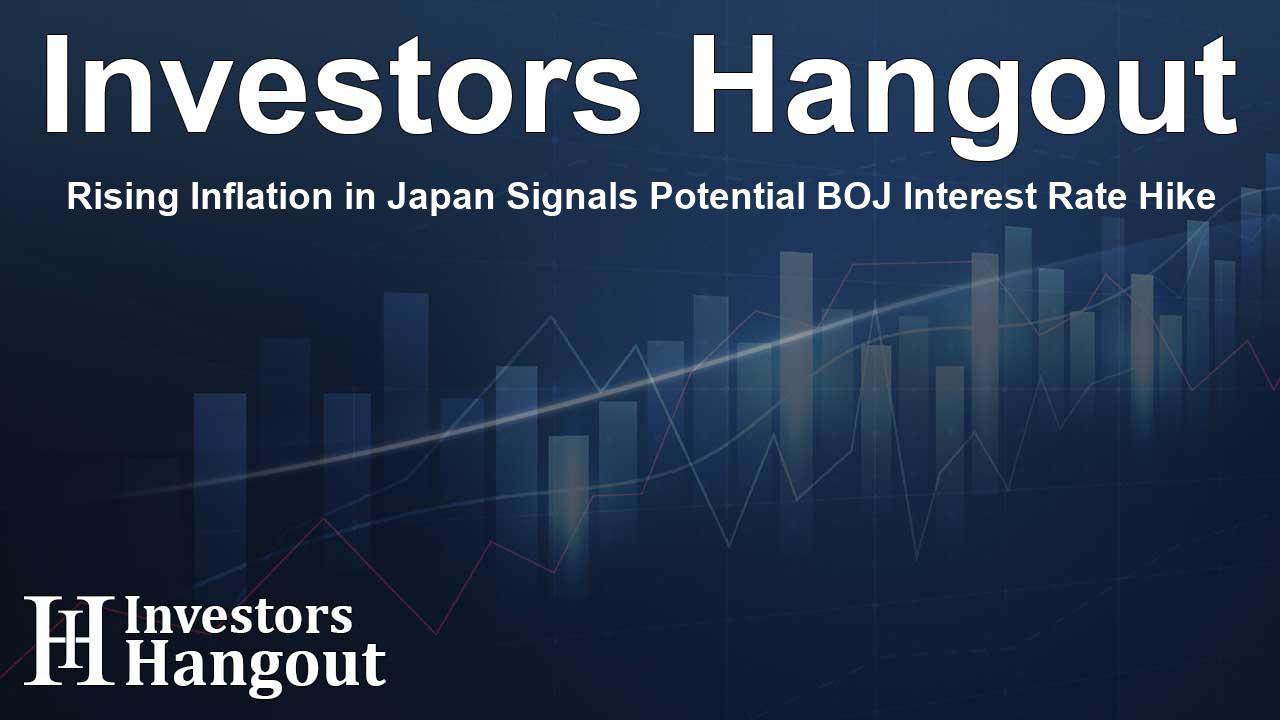Rising Inflation in Japan Signals Potential BOJ Interest Rate Hike

Japan Faces Rising Inflation: Are Rate Hikes Next?
Japan is currently experiencing a steady increase in consumer inflation, which is likely to continue its upward trend for the fourth month in a row. A recent survey of 20 economists suggests that inflation is expected to exceed the central bank's target of 2%, raising important questions about the country's future monetary policy.
Driving Forces Behind Inflation
The core Consumer Prices Index (CPI) is projected to rise about 2.8% year-on-year for August, a slight increase from July's figure of 2.7%. This uptick in inflation is largely attributed to soaring electricity and gas prices, alongside rising food costs caused mainly by rice shortages. According to Takeshi Minami, chief economist at Norinchukin Research Institute, these energy-related expenses are key factors fueling the inflation rate.
Trade Imbalance and Export Dynamics
Alongside rising inflation, other economic indicators are emerging that deserve attention. Exports in August are expected to grow around 10%, although this marks a small slowdown from a 10.3% increase in July. In contrast, imports are anticipated to surge by 13.4%, largely driven by increased demand for computers and communication devices. This uptick in imports, coupled with more modest export growth, is likely to lead to an estimated trade deficit of around 1.38 trillion yen, which is roughly $9.79 billion.
Important Economic Data on the Horizon
The internal affairs ministry is preparing to release crucial CPI data on September 20, which will shed more light on the inflation situation. Furthermore, the finance ministry will announce trade statistics on September 18, providing economists with additional data to assess the state of Japan's economy.
Possible Future Policy Changes for the BOJ
As inflation continues to climb, the implications for the Bank of Japan (BOJ) become increasingly significant. Rising prices may prompt the central bank to reassess its current monetary approach. Typically, higher inflation leads to increased interest rates—something the BOJ might need to consider to counteract the rising costs. While this shift could be concerning, many economists feel that keeping interest rates low indefinitely could result in negative economic conditions in the long run.
Keeping an Eye on Machinery Orders
Another key area to monitor is machinery orders, which are an important indicator of future capital spending. Recent polls indicate a modest month-on-month growth rate of 0.5% for July, down from a more robust 2.1% increase in June. Tracking these orders will offer valuable insights into the future trajectory of capital investment in Japan.
Conclusion: Navigating Economic Uncertainty
In conclusion, Japan is navigating a complex economic landscape marked by rising inflation and trade imbalances. The data set to be released in the near future will be critical for shaping expectations regarding the BOJ's monetary policies. As various economic sectors respond to these inflationary pressures, stakeholders will be closely observing how policymakers navigate these challenges in the coming months. The evolving situation in Japan serves as a reminder of the delicate balance that underpins global economic stability, highlighting the interconnectedness of modern economies.
Frequently Asked Questions
What is the current trend of inflation in Japan?
Japan's inflation has been rising for four months straight, with a forecasted increase to 2.8% for August.
Why are inflation rates important for the Bank of Japan?
Inflation rates are critical because they can influence the BOJ's monetary policy, including decisions on interest rates, to ensure economic stability.
What are the predicted trade statistics for Japan?
Japan is expected to encounter a trade deficit of roughly 1.38 trillion yen, driven by a greater volume of imports compared to exports.
How do machinery orders indicate the economy's future?
Machinery orders act as a leading indicator of capital spending, reflecting businesses' investment intentions for the months ahead.
What should we expect from the upcoming economic data releases?
The upcoming CPI and trade statistics will provide essential insights into inflation trends and the overall health of Japan's economy.
About The Author
Contact Owen Jenkins privately here. Or send an email with ATTN: Owen Jenkins as the subject to contact@investorshangout.com.
About Investors Hangout
Investors Hangout is a leading online stock forum for financial discussion and learning, offering a wide range of free tools and resources. It draws in traders of all levels, who exchange market knowledge, investigate trading tactics, and keep an eye on industry developments in real time. Featuring financial articles, stock message boards, quotes, charts, company profiles, and live news updates. Through cooperative learning and a wealth of informational resources, it helps users from novices creating their first portfolios to experts honing their techniques. Join Investors Hangout today: https://investorshangout.com/
The content of this article is based on factual, publicly available information and does not represent legal, financial, or investment advice. Investors Hangout does not offer financial advice, and the author is not a licensed financial advisor. Consult a qualified advisor before making any financial or investment decisions based on this article. This article should not be considered advice to purchase, sell, or hold any securities or other investments. If any of the material provided here is inaccurate, please contact us for corrections.
